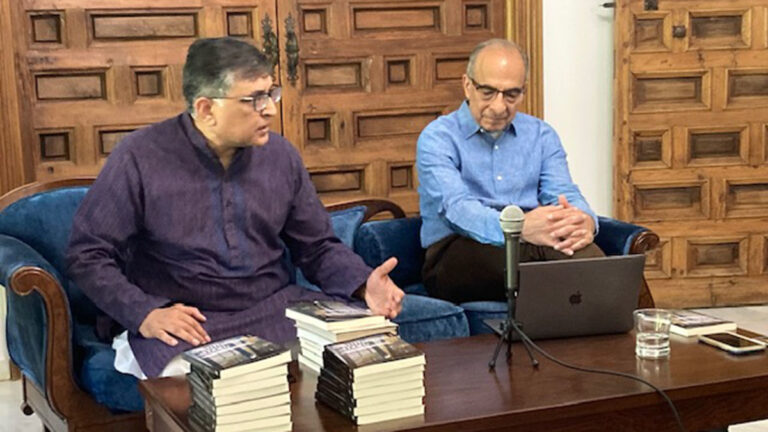This August marks 77 years since India was divided into two states.The boundary was hastily drawn by lawyer Cyril Radcliffe, who had never set foot in the area, at the behest of Lord Louis Mountbatten, a cousin of George VI and governor of the island, then known as the jewel in the British Crown.
It was not an amicable breakupTwo post-colonial ideas collided: those of Mahatma Gandhi and Jawaharlal Nehru, who wanted India to be one united nation, and those of Muslim League leader Mohammed Ali Jinnah, who believed Muslims would be worse off without a sovereign state. Jinnah had already predicted this just a year earlier, in 1946, when he called for a Day of Action: “Choose between a divided India or a destroyed India.” That Day of Action left 4,000 people dead and 10,000 injured, and foreshadowed many more clashes between the two communities.
Born in Lahore, Waqas Khwaja is known as one of Pakistan’s greatest poets and a prolific writer. Many of them depict the tragedy of what was, for at least 15 to 18 million people, the largest migration event in human history.: Millions of Muslims left the homelands where their families and ancestors had lived for hundreds and thousands of years to settle in a new land unknown to them, the land now called Pakistan. Similarly, millions of Hindus with similar personal and family histories crossed the border in the opposite direction to settle in the “righteous country”. Lalamusa station, where the Pakistani flag was first raised, was the main hub of that forced migration, and the hateful glances exchanged before the numerous attacks that followed in that moment of redesigning the British colonial legacy, and the four wars that the two countries have fought since independence. This conflict is considered by many to be permanent and unsolvable.
“The smell of death hangs everywhere / The smell of loss / The deadly stench of betrayal / Every moment of existence / An affront to life / And it’s as if the whole city / Flows into the street / In amazement at the devastation etched on every face.” Khwaja paints the picture of the tragedy in calm, concise words that bring to life the horror of the situation in vivid detail.He manages to evoke the tragedy and violence of the time and express it as lyrically as the narrator’s palpable sense of loss, who had to leave his beloved Kashmir behind.
Waqas Khwaja, His extensive writings constantly argue for the intersection and interconnectedness of different cultures.In addition to speaking several of Pakistan’s seven languages, she is also a professor of English at Agnes Scott College in the US and lives in the US, where she hosts an annual public poetry festival as part of the international “100,000 Poets Transforming Life” project.
Zahoor Ahmed, Pakistan’s new ambassador to Spain and organiser of the evening with Khwaja, recommended Professor Deepika Bahari’s annotations of a collection of poems.“This is poetry with conscience, language with heart, intellect shining through emotion. With these poems, Khowaja penetrates the darkness of secession and extracts from its violent, suppurating core what makes it bearable: the sharp sedative of memory and the partial but hopeful promise of healing through painful attendance.”
A pleasant surprise for readers is this edition of “Nadie espera el tren.” (Ed. Juglar, 267 pages), editor Francisco Javier González arranges the poems in original English on the even pages and excellent Spanish translations by Elisa Corona Aguilar on the odd pages.
read more

